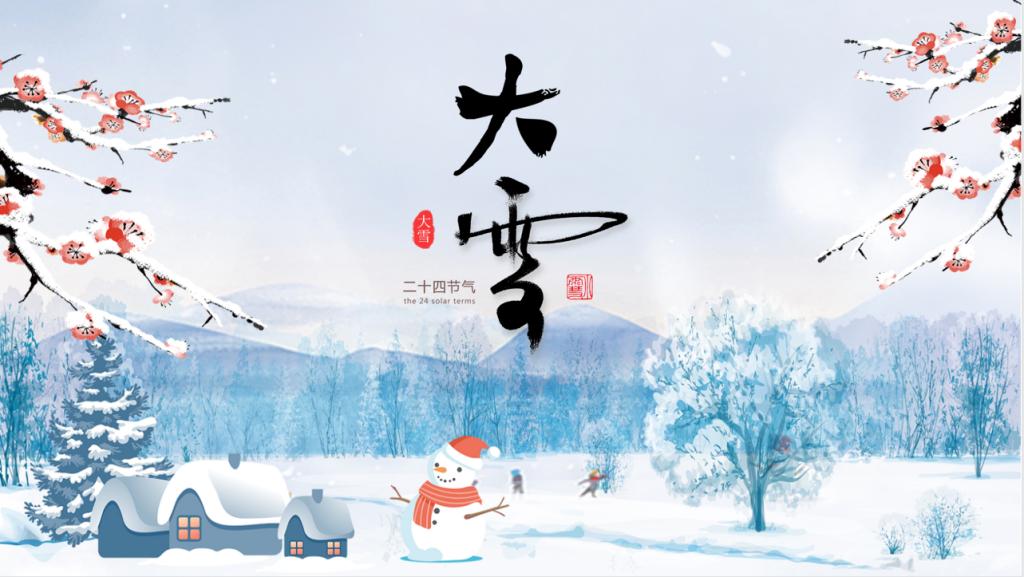Editor's note: The 24 Solar terms are an ancient Chinese calendar used to guide farming. They are the crystallization of the accumulated experience and wisdom of the working people of the Chinese nation. Since ancient China was an agricultural society, people required a strict understanding of the sun’s movement, and farming was conducted entirely according to the sun as well. Therefore, the “24 solar terms”, which reflects the sun’s movement cycle, were added to the calendar as the standard for determining leap months. The 24 solar terms are: Start of Spring, Rain, Awakening of Insects, Spring Equinox, Qingming festival, Grain Rain, Start of Summer, Grain buds, Grain in Ear, Summer Solstice, Minor Heat, Major Heat, Start of Autumn, End of Heat, White Dew, Autumn Equinox, Cold Dew, Frost’s Descent, Start of Winter, Minor Snow, Greater snow, Winter Solstice, Minor Cold and Major Cold. On November 30, 2016, China’s “24 Solar terms” were officially inscribed on UNESCO’s Representative List of intangible Cultural Heritages of Humanity. We have introduced this 24 Solar terms column to bring you a taste of the beauty of traditional Chinese culture.
Greater snow, the 21st solar term in the 24 solar terms, is also the third term in winter. Like minor snow, greater snow is the reflection of ancient farming culture and its vision of the seasons. Greater snow is characterized by a significant drop in temperature and an increase in precipitation. Interestingly, in fact, the snow in the greater snow period is often not as heavy as that in the minor snow period.

Greater snow
In ancient China, people divided greater snow into three pentads. The first is that HeDan, a kind of bird, stops tweeting. At the second pentad, the tigers begin to mate. The third is the Iris Lactea Pall sprout. It means that even hardy birds like the HeDan have stopped singing because of the cold weather. In the ancient Chinese concept of “Yin” and “Yang”, the moment the “Yin” becomes the top of the year. Meanwhile, “Zhou Yi” put forward this theory: Everything will decline when it reaches its peak. So the “Yang” beginning to move result in the tigers’ courtship behavior occurring and the Iris Lactea Pall starting to grow.
Greater snow also makes a crucial impact on agricultural activities. Because of the great difference in climate characteristics between the north and the south, the main agricultural activities of the south and the north in China are different accordingly. In winter, there is a vast expanse of white and icy snow in northern China, and it is basically impossible to grow crops. At this time, there is little field management in northern China, which is a slack season for farming. In southern China, wheat, rape and other crops are still growing slowly, so it is important to strengthen field management of spring flower crops. The greater snow often appear cooling, snow, freezing rain, rime, flow ling and other weather disasters. In case of freezing damage, it is necessary to timely loosen the soil to increase fertilizer, water storage to raise temperature, and strengthen management in the middle and late stages, so as to minimize the loss of freezing damage.
There are also some interesting customs. As the Chinese saying goes, “At minor snow pickle the vegetables. At greater snow pickle the meat.” Every family will hang their salted meat, sausage, salted fish and other pickled products at the door and the window still. If it happens to be a heavy snow, people will be keen to have snowball fights and enjoy the scenery in the ice and snow. At that time, families get together and enjoy the happiness.

Salted meat

